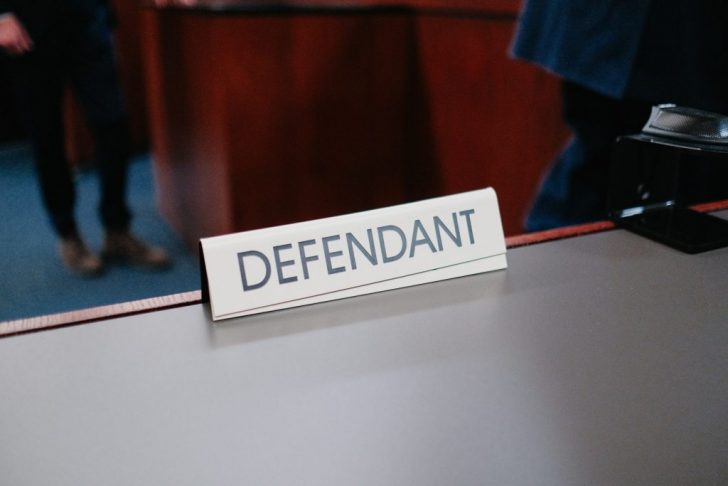
How to Sue Someone: What You Need to Know

Have you ever found yourself in a situation where someone wronged you so egregiously that you thought, “I should sue!”? Whether it’s a breach of contract or a personal injury, sometimes the only way to get justice is through the courts. However, the process of suing someone is more complex than it might seem in TV dramas. It’s a complex journey that requires careful thought and preparation. If you’ve ever wondered how to sue someone, this guide will walk you through everything you need to know to navigate the civil justice system effectively.
What Does It Mean to Sue Someone?
To sue someone, you file a lawsuit in civil court. This is different from criminal court, where crimes are prosecuted. In civil court, you’re not asking for the defendant to be punished; instead, you’re requesting something from the court, usually monetary compensation for losses. This could stem from various situations, such as someone breaching a contract or causing you harm through negligence.
How to Sue Someone
The decision to sue should not be taken lightly. Suing involves determining if your case is worth pursuing, where to file the lawsuit, and navigating many legal complexities. Here’s what you should consider first:
1. Decide if You Should Sue
Before you dive into the legal process, ask yourself a few critical questions:
Do You Have a Good Case?
To sue someone, you need a valid legal cause of action. This means you must prove that the defendant violated a legal duty, their failure caused you harm, and the harm resulted in damages that can be compensated. If you have solid evidence, suing might be worthwhile.
Are There Alternatives to Suing?
Lawsuits can be stressful, expensive, and time-consuming. Sometimes, alternative dispute resolutions like mediation or arbitration can be more efficient. Many disputes are settled out of court, where both parties agree on a resolution without going to trial, saving time, money, and stress.
Is There Money to Pay You if You Win?
It’s crucial to consider whether the defendant has the means to pay any judgment you might win. Often, defendants will be covered by insurance, but in cases where they are not and lack significant assets, they may be “judgment-proof,” meaning they can’t pay what the court orders.
2. Gather Evidence
If you decide to proceed, the next step is to gather all necessary evidence to support your case. This might include contracts, communications, medical records, and other documentation proving your claim.

Gabrielle Henderson | Unsplash | To sue someone, you need all necessary evidence to support your case.
3. Find the Right Court
You must file your lawsuit in a court with jurisdiction over the case. This generally means in the state where the incident occurred or where the defendant lives. You might file in federal court in certain cases involving parties from different states and a claim amount above $75,000.
4. Completing the Court Paperwork
Filing a lawsuit requires completing specific forms and paying a filing fee. The required documents can vary widely depending on the court and the nature of your case. It’s advisable to have legal assistance during this phase to ensure everything is filed correctly.
5. How to Serve the Defendant
After filing your lawsuit, you need to inform the defendant by “serving” them with a copy of the complaint and a court summons. This is typically done by a professional process server who ensures that the defendant receives the documents personally.
6. Going to Trial
If the defendant responds to your lawsuit, the case may be trialed. During the pre-trial phase, both sides exchange information and evidence in discovery. If your case goes to trial, you will need to prove your claims by a “preponderance of the evidence,” meaning it’s more likely than not that your claims are true.
Conclusion
Suing someone is a significant undertaking that requires many steps and considerations. It’s essential to weigh the potential benefits against the costs and emotional energy of pursuing a lawsuit. Hiring a knowledgeable attorney can make a substantial difference in managing the complexities of the legal process and increasing your chances of a favorable outcome. So, if you’re considering taking legal action, consult a lawyer who can guide you through every step of suing someone effectively.
More in Legal Advice
-
Apple vs. Apples: The Battle for the Fruit’s Digital Image in Switzerland
In a truly peculiar trademark showdown, Apple, the tech behemoth, is attempting to claim intellectual property rights over depictions of apples,...
December 28, 2023 -
Shakira’s $15 Million Spanish Tax Fraud Case Settlement
In a stunning turn of events, global pop sensation Shakira found herself at the center of a high-stakes legal drama in...
December 18, 2023 -
The Most High-Profile Celebrity Lawsuits of All Time
Welcome to the other side of Hollywood’s velvet curtain, where fame and drama collide in courtrooms instead of film sets. In...
December 6, 2023 -
A Step-By-Step Guide to Becoming a Real Estate Lawyer
A real estate lawyer specializes in legal matters related to property, from transactions to disputes. They ensure legality in real estate...
December 3, 2023 -
What Is Asylum & How Does It Work?
At its core, asylum is a protection granted to foreign nationals in a country because they have suffered persecution or have...
November 26, 2023 -
6 Reasons Why Sentencing Is Any Judge’s Toughest Assignment
When you picture a judge, you might imagine a stern figure in black robes, gavel in hand, delivering verdicts with unwavering...
November 14, 2023 -
Carrie Underwood Sued for NBC Sunday Night Football’s “Game On”
It is almost ritualistic. As the weekend winds down and Sunday evening approaches, millions across America gear up for a night...
November 12, 2023 -
Why Lawyers’ Productivity Has Increased in Modern Times
Remember the old days when your image of a lawyer might have been drawn straight out of an episode of “Matlock”...
November 5, 2023 -
Paying Down Debts Using Debt Relief Tactics
Debt is like that lingering headache that never seems to go away, no matter how much aspirin you pop. But there...
October 29, 2023
















